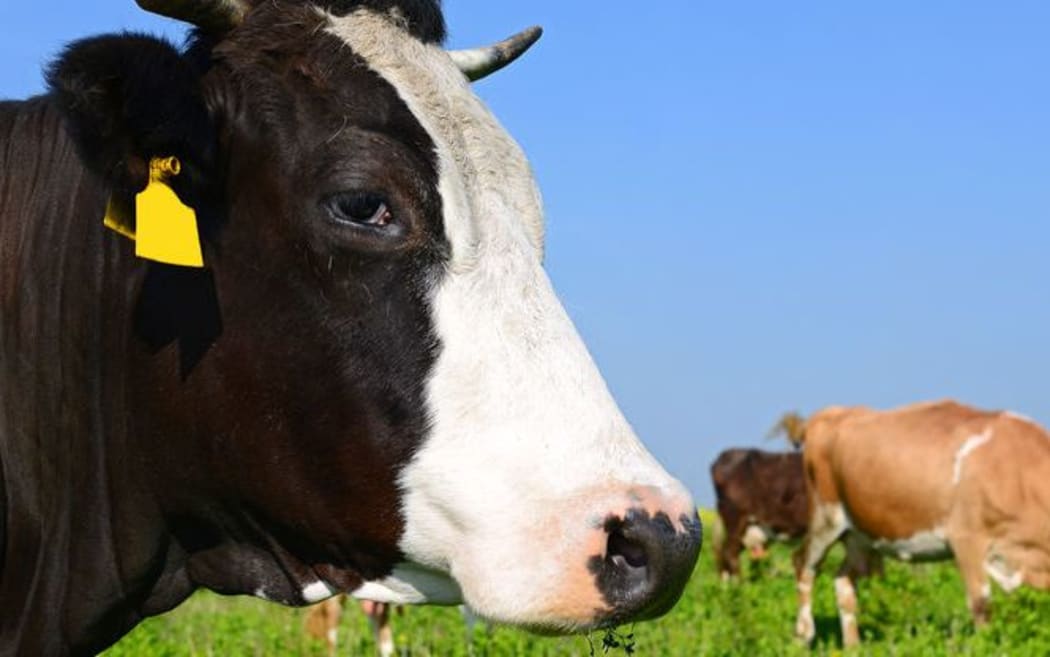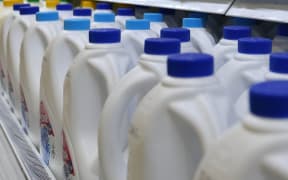Dairy farmers across New Zealand are preparing for the worst as they prepare to cut costs and trim already tight budgets amid the dairy tumble.
Dairy NZ, which advises farmers, said it was helping farmers to gain the maximum profit out of each kilogram of milk solids.

The size of the latest drop in international dairy prices has taken dairy farmers and commentators by surprise. Photo: 123RF
General manager of research and development David McCall said it had been a rough time for farmers with a drought followed by a harsh winter and consistently falling milk prices.
"They've clawed their way out of paying off debt in the last two or three years, in the good years, and this potentially throws them into another $200,000 debt that they're looking at having to take on, and then pay off again as things pick up again."
Falling dairy prices had already led Fonterra to set a cautious opening price of $5.25 per kilo for the new dairy season, while analysts estimated dairy farmers need at least $5.50 to $6 per kilo to break even.
Agrifax dairy analyst Susan Kilsby told Morning Report the latest drop meant many farmers would not break even for a second consecutive year.
"The only way they can survive is by taking on more debt, so a really tough situation to be in."
All products other than lactose fell in price in the overnight auction. Skim milk powder, another important commodity to farmers, fell by about 10 percent to $US1702 per tonne and cheddar slumped 14 percent to $US2613 per tonne.
Rural businesses feel the pinch
A farm machinery company in Taranaki says reduced dairy payouts are beginning to hurt rural businesses.
Taranaki regional manager of Norwood Farm Machinery Mark Sanger said turnover for June was down 32 percent on last year, as farmers kept their wallets in their pockets.
Mr Sanger said he was scaling the business back to 1990s levels ,when low dairy payouts were commonplace.
Things are also tough at Stratford farm supply company Central Milking and Pumping.
Its owner Steve Bruce said declining forward orders meant he was scrutinising all business costs carefully.
He said so far he had been able to avoid cutting staff, but that it was a given that jobs would be lost in the near future.
Highly indebted dairy farmers at risk
The latest slump also raised the spectre of some highly indebted dairy farmers going bust and being forced to sell their farms.
That was last seen on any scale during the 1980s stock market crash, when forced sales by banks became a major issue.
Independent rural finance consultant Don Fraser said the most vulnerable farmers in the current climate are those who have borrowed heavily for dairy farm conversions or expansion and who are running a high input, high cost system, feeding cows more grain and palm kernel to get the maximum milk production.
"Those with the high debt, over $30 dollars a kilo, are going to find it extraordinarily difficult to continue, unless they've got a lot of equity in their farms and the banks are prepared to fund that deficit.
"In the [1980s] crash, we just battened everything down, but in those days we were all grass farming, we had very few inputs that we had to pay for. In fact, we really just paid for wages and fertiliser for the year and survived, quite frankly.
"How it's different today is there's a lot more input, a lot more compliance cost and those farmers who have go into high input will find it difficult to get their costs of feed down.
"The difficulty is that high input farming will not work on a very low payout and the ability of a farmer to retract or to go back to a lower input system is very difficult, for the cows, as well as the farmers, to see a cow going back to producing 500 kgs (of milk solids) back to about 350kg."



